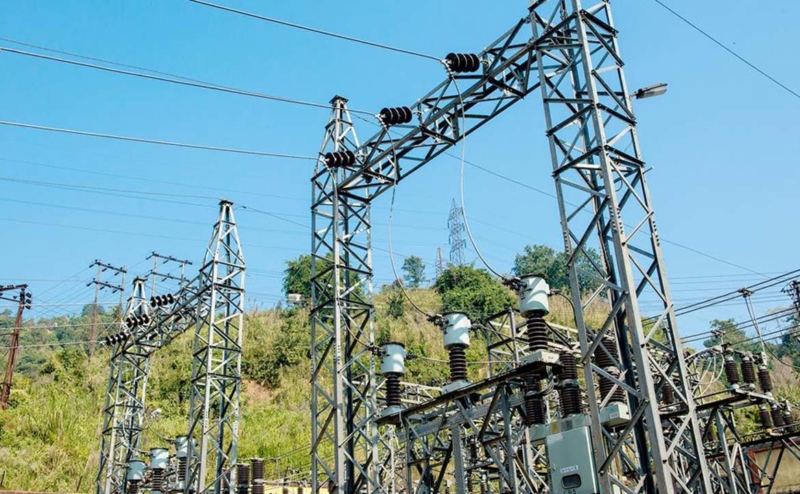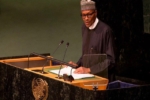The Nigerian Electricity Regulatory Commission (NERC), is set to release a minimum recapitalisation level required to be met by core investors in the power sector.
NERC identified capital adequacy as a major issue in the power sector, pointing out that the successor companies of the Power Holding Company of Nigeria (PHCN) were handed over to the core investors without any liability.
As a result, after three years of operating the successor companies, there have been colossal losses, thus necessitating the need to set minimum capital adequacy requirement by the investors.
The NERC Vice Chairman, Sanusi Garba, gave the indication at the 14th Power Sector Stakeholders’ meeting presided by the Minister of Power, Works and Housing, Babatunde Fashola, at the National Control Centre, Power Line, Oshogbo, Osun State.
The recapitalisation plan comes as the Association of Nigeria Electricity Distributors (ANED), kicked against NERC’s plan to escrow revenue accounts of distribution companies (DisCos).
The decision to escrow the bank and operational accounts of some DisCos in Nigeria became imperative following their refusal to pay generation companies (GenCos) for electricity wheeled to them by the Transmission Company of Nigeria (TCN)
Meanwhile, Garba however did not indicate how much the core investors in the GenCos), and DisCos are expected to beef up their capitalisation, or the timeframe for its actualisation.
He said: “Another issue that I will like to bring to the attention of our sector stakeholders is the issue of capital adequacy. At the time of privatisation, these PHCN successor companies were handed over to core investors without any liability. But operating them over the past three years, there have been colossal losses.
“We have a feeling, looking at the audited accounts we have received so far, that the capital base of these companies had been grossly eroded. Therefore, we have started working and evaluating the minimum capitalisation that will be required to make sure that our licensees have the required resources to do what they need to do.”
Garba said that within the next few weeks, the necessary consultation will begin, and will direct the core investors to meet the new minimum capital so that they will be able to do the required investments, reinforcements and service delivery that consumers need throughout the country.
Furthermore, he said NERC plans to direct the DisCos to connect all the Ministries, Departments and Agencies (MDAs) with prepaid meters as a means of curbing indebtedness to them.
This is against the backdrop of the audit report, which revealed that debts owed by Federal Government MDAs to the DisCos had increased to N51 billion, representing 86 percent of the total debts of N59.3 billion owed by top 100 customers. The bulk of the debts were owed by the Military, Defence and MDAs.
ANED’s Executive Director, Sunday Oduntan, in a statement on Monday, noted that any attempt to go ahead with this plan to escrow the revenue accounts is tantamount to nationalisation or expropriation of the DisCos.
According to Oduntan, government had backslid in the N100 billion subsidy payment and other privatisation requirements.
ANED said: “To date, the government has not met the privatisation transaction foundational requirements of providing N100 billion in subsidy to the sector.
“Indeed, any at escrowing our accounts runs counter to the objectives of the National Electricity Power Policy, 2001 (NEPP) and the Electric Power Sector Reform Act, 2005 (2005), of a private sector-owned and managed electricity sector.
“It would also send very wrong signals to domestic and international investors that Nigeria is not fully open for private sector investment and that we are still partial to the old habits of nationalisation, preventing the injection of the cheap and sorely needed capital that is critical to the rehabilitation and improvement of electricity infrastructure.
“You cannot have a, supposedly, private sector-owned and managed business in which the government now seizes control of its revenues. It is a contradiction in terms and practice. The same principle applies to any consideration of regulations or government action that intrudes into corporate responsibilities of procurement, financial management or personnel management.”
On plans to get DisCos declare their eligible customers, ANED said: “We understand that the idea of Eligible Customer declaration is under serious consideration. Our understanding is that Eligible Customers may only be declared by the Minister when a competitive market exists in the Nigerian Electricity Supply Industry (NESI).
On the N800 billion shortfalls in the sector, which had pushed power operators in financial crisis, ANED said : “These shortfalls undermine intervention objectives of the government.
“Similarly, continued failure to account for the outstanding market shortfalls that are currently in excess of N800 billion will, essentially, mean that the upstream operators remain in financial jeopardy, undermining one of the government’s major objectives for the intervention – increased or improved liquidity.”
Guardian
This page has been viewed 457 times
Tags : Editors choice






























